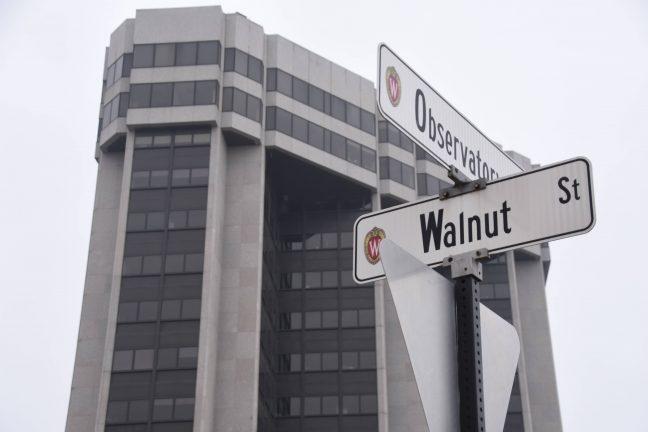The University of Wisconsin Population Health Institute announced the creation of the Wisconsin Healthy Communities Designation, which will commend efforts of communities across the state for their work to improve the health of individuals and the environment.
The program has spent almost a year and a half in development and is an undertaking of the Mobilizing Action Toward Community Health group’s project, known as the Making Wisconsin the Healthiest State project.
Ann McCall, Wisconsin Healthy Communities Designation communications and project manager, and Paula Tran, UW MATCH communications and project manager, both have high hopes for the program and its intentions to encourage the overall health of communities statewide.
“It’s often a long journey toward building a healthy community, so the program was created to acknowledge the good work that local leaders are doing to work towards those long-term goals,” Tran said.
Office of Sustainability reps introduce methods to make ASM offices Green Office certified
Interested communities can center their long-term goals in areas like health behaviors, clinical care, their physical environment, sustainability efforts and social and economic factors.
A driving factor behind the creation of the program was the realization that many communities wish to be healthier than they already are, according to reporting from Wisconsin Public Radio.
By the standards of the program, a healthy community has a wide definition. The word “community” does too.
“A healthy community is one that broadly assesses its needs and then examines and focuses on the multiple factors that determine health when structuring their health improvement efforts,” McCall said.
The program also wanted to make clear that participating communities are not limited to a zip code or specific city. Any interested neighborhoods, chamber of commerce or county is eligible for participation, according to WPR.
Another intent of the Wisconsin Healthy Communities Designation is to encourage collaboration among diverse partners, both McCall and Tran said.
“A number of stakeholders had this idea and came together to bring the program to fruition,” McCall said.
The program has already experienced some success in the area of cross-group collaboration by directly involving graduate students from the UW Population Health Institute in the development and startup of the program, as well as professional groups such as the UW Mobilizing Action Toward Community Health Group.
The UW MATCH program helps assess population health and works alongside various communities to identify specific areas of improvement regarding their health. MATCH holds seminars, workshops and training and education programs for communities and public health workers to promote healthier practices across the state.
McCall has also played a wide range of roles in the Wisconsin Healthy Communities Designation as its project manager.
“[My role] involves program planning and development, coordinating with other MATCH staff and the program’s advisory team,” McCall said. “[I also] ensure that communities have the support and resources they need to apply and ensure that the various program components are documented.”
As it stands, the process that a community must go through if they hope to receive the designation of a “Wisconsin Healthy Community” takes place primarily online.
The interested community must submit a letter of interest, and if the letter is positively received, the community will receive an invitation to apply online for their desired award distinction.
Office of Sustainability to give out $50,000 through Green Fund
There are currently three levels of award designation that a community can receive. Those levels are gold, silver and bronze, with gold being the highest level of distinction. Each tier has a unique set of criteria that must be met and a separate application process exists for each level.
“This is the inaugural year of the program, and so far we’ve seen a lot of interest from communities around the state,” McCall said.
The first ever “Wisconsin Healthy Community” recipients will be announced summer 2018. Winners will be recognized at the Healthiest State Summit in Green Bay in late September 2018.
As for the future of the program, McCall and Tran believe that it is looking up.
“Our hope is that we can build off of a successful first year and grow the program in future years,” McCall said.














